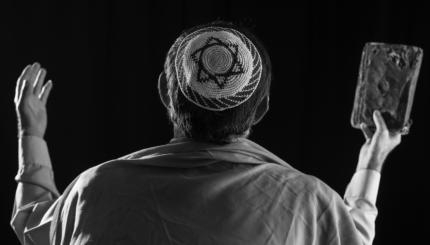Rosh Hashanah is a magical time. Or at least, we seem to think so. According to the Mishnah ( 1.2), on this date “all of creation passes in front of God like sheep in a flock.” Our High Holidays liturgy takes this idea of “the Day of Judgement” and runs deep with it. In the holiday prayer book, the Unetane Tokef painstakingly details the different ways in which God decides on this day how we might die (or live) next year: “Who by fire, and who by water, who by the sword and who by famine.” The theological underpinning of this belief is that Rosh Hashanah is a heady textured time in which God is busy with deciding the fate of all creatures for the next year, and that our behavior in this time might swing God’s judgment in our favor: “but prayer, charity and repentance annul the severity of the decree.”
When is Rosh Hashanah 2018? Click here to find out.
In Kabbalistic parlance, times like these are called ‘itei ratzon (favorable times). They are, so to speak, God’s office hours in which God is open and willing to requests. This can be an inspiring idea and it may be partly responsible for why our pews are warmer in September than they are in June. However, this theology has a downside. If there are times when God is more open, then there are times when God does not want to be bothered with our petitions, however sincere they are. No one wants to get that call from the office at 3 a.m or while on the beach at the Bahamas, not even the Master of All. This is the downside of believing in magical time: We might wait and sit around for the God weather to improve and, by then, it might be too late. This seems to swim against other voices in our tradition that press for the urgency of change whenever it presents itself. If not now, when? Why should I wait to get to pour my heart to an infinite and ever compassionate God? If God can create the Heavens and Earth, cannot God also multitask?
A solution to this conundrum was offered by Maimonides in his Laws of Repentance 2.6, in which he says that Rosh Hashanah is an auspicious time of repentance only for individuals, but a tzibbur — a collective — always has God’s ear, regardless of the time. Indeed, part of the power of the High Holidays might be the fact that it is then, and for some communities only then, that we represent the widest and most diverse collective of the Jewish people. Only in these days do we have a substantial portion of our communities coinciding in place and intention. On these days, we are more of a cohesive collective than in any other time.
But this brick-and-mortar, Jew-in-the-pew definition of collective is evolving. As a rabbi active primordially on the Web, I am amazed at the power of our new technologies to create communities. Facebook friends come together to find a marrow donor for someone they have never met. Jews and allies band arm in arm (or keyboard in keyboard) to stand for just causes, Jewish and otherwise. Jews in Brooklyn are finding Jews in India, Uganda and Hong Kong and forming bonds of friendship. Jews are turning to the Internet rather than to the local Yenta for their matchmaking needs. I am an Internet rabbi. Every night, people from over 20 countries come into my virtual living room to recite the traditional selichot, the prayers in preparation for the High Holy Day season, together as a tzibbur, a community. These gatherings are not bound by space, or even time. They connect Jews from the four corners of the earth. They do not replace face-to-face congregations or real-time encounters but supplement and enrich them. Our God, who so delights in community and togetherness, must be having a field day watching over the Internet.
In ancient days, our ancestors shuddered to petition God out of the appointed times. Like the book of Esther, the King could only be approached when He was ready. But in our world, which neither slumbers nor sleeps, God has to be assumed to be ever ready, ever involved and ever present. In ancient days, people had to walk and make and effort to become a community. Today the challenge is that our instantaneous communities are holy ones. Thus we do not have to wait for Rosh Hashanah to seek forgiveness, improvement and inspiration. Let us make every moment an ‘et razon, a time of favor, and let us start with our expanded communities online. Let us sound the throughout the web, calling the world to forgiveness and unity, let us exercise compassion in our virtual transactions. The God of Israel, who truly is everywhere, will certainly aid us in this holy endeavor and be glad we came, for many for the first time in their lives, early to Rosh Hashanah.



